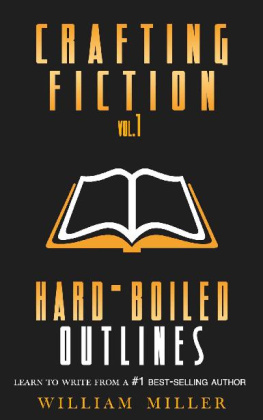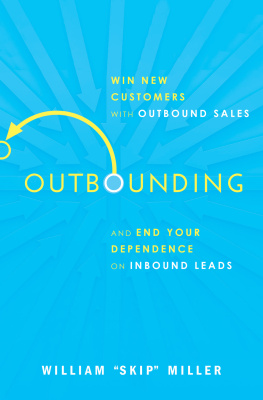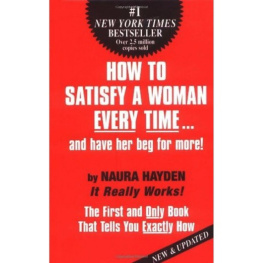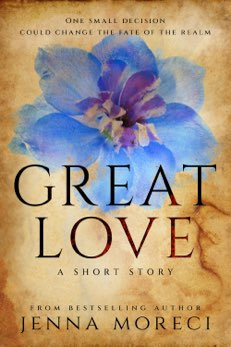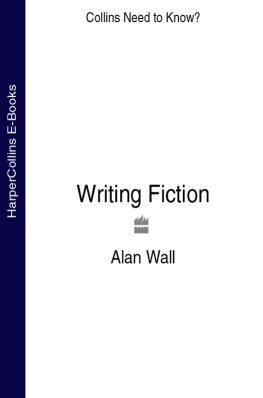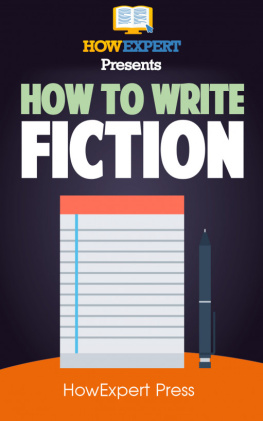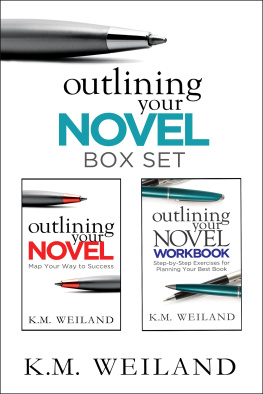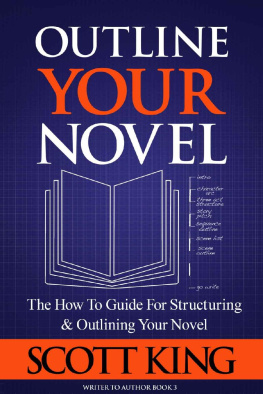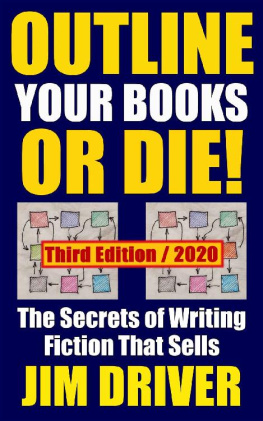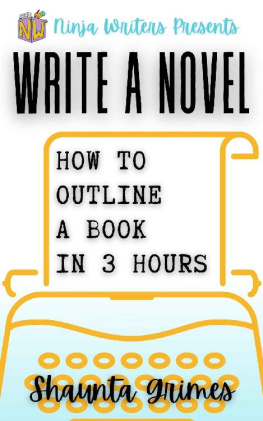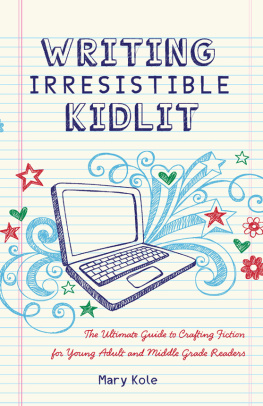CRAFTING FICTION vol. 1
Crafting Fiction vol. 1 Hard-boiled Outlines
Copyright 2017 by William Miller.
All rights reserved. Printed in the United States of America. No part of this book may be used or reproduced in any manner whatsoever without written permission except in the case of brief quotations em- bodied in critical articles or reviews.
LETS GET A FEW THINGS STRAIGHT FROM THE OUTSET . Im a genre writer. Always have been. Always will be. Im okay with that. Im a red blooded American male who grew up on the works of Raymond Chandler, Louis LAmour, Robert E. Howard, and Mickey Spillane. I like good stories, told plain and simple.
I never harbored aspirations of writing the next Great American Novel. High-brown literary fiction is, in my opinion, only good at curing insomnia. Apart from massacring our nations forests, all those character driven tales of self discovery only serve to reinforce the literary establishments stranglehold on the publishing world.
I write fast-paced, hard-boiled fiction with the sole purpose of entertainment. Im okay hanging out in the literary gutter with the likes of Mike Hammer and Conan the barbarian. My work speaks to the guys who watch football, drink beer, and change their own oil. Those are my people. Im okay with that too. (Just between us, a lot of women read my books too. Read into that what you will.)
If you want to learn to build stories, the way a construction worker might build a house, then youve come to the right place. I can show you a simple, easy to follow blueprint for creating your story outline and completing the first draft. Thats what this book is all about. Learning to build an outline for plot driven fiction.
If you are looking for mythic mountain bull-pucky about finding your muse, exploring the human condition, or using fiction to deal with your daddy issues, then take a hike. Enroll in a course at the local community college where the instructors will introduce you to theme, character development, and reflections on the injustice of the gender wage gap.
This guide is all about learning to write genre fiction. Its about learning to tell a story using short, punchy scenes to keep the reader turning pages. Its about writing the kind of book that gets five star reviews on Amazon, the kind of story Jerry Bruckheimer might turn into a movie.
Most importantly, its about telling the kind of story people are willing to pay money for. Being a writer is tough. Its even harder if you have to work a day job and write at night. The only way to remedy that situation is to make enough money from your writing to live on.
And thats the purpose of this book; learning to craft marketable fiction so you can pay the rent and have a few greenbacks left over to take your best girl out for a burger at a greasy spoon where the cook wears a dingy apron and calls everybody Mac.
*See what I did there? I painted a picture in your head. With just a few words, I gave you the image of a hole in the wall diner and a fat man flipping burgers. You probably even got an idea of his voicegravelly and short tempered. It doesnt take long, flowery passages to make good fiction. All you need are the right details and the reader will do the rest. But Im getting ahead of myself. I plan to write a whole series on the craft of fiction and this volume focuses on the all important story outline .*
On Earning a Buck ( or Two)
Is it all about the money? Nope. Id write if nobody was reading, but lets face it; money is a good indicator of how many people are enjoying your work. And whats the point of writing if nobody is being entertained? There is no greater thrill in the world than knowing someone really enjoyed a piece of fiction that you spent months working on. It makes all that hard work worth it. And earning money from writing allows you to quit your soul sucking day job and write full time, so you can produce even more fiction.
I wont lie. There is a lot of hard work involved. There are some really crummy days when youll question whether youll ever sell a book, or if your writing is any good at all. I still have days were Im sure every word I typed sucked the sweat off a dead rats butt. But even bad writing days are better than painting lines on the freeway or hauling hundred pound rolls of substrate. Ive done both to make ends meet.
So if you are willing to put in the hard work and follow the action steps included at the end of each section, then I can teach you to write stories that people will fork over their hard earned money for.
WHEN I FIRST STARTED WRITING, I HAD NO IDEA WHAT I WAS IN FOR . All I knew was that I had stories in me clamoring to get out. No one bothered to tell me that getting published was next to impossible, finding a readership was difficult, and I would be lucky to make enough money to keep the lights on. Looking back, its probably a good thing. If I had known how hard it was going to be, I would have chucked the idea of publication and wrote stories for myself. But I was young and nave. All I knew for sure was that I wanted to be a good writer, whatever that means, and get published.
In the beginning, I didnt even have a plan for how to become a good writer. I sat down, started writing and hoped for the best. Unfortunately, my best efforts didnt amount to much. In fact, most of what I produced was downright dismal. I kept at it though. Like so many young and inexperienced writers, I had a vague notion that writing was an art form and art comes naturally if it comes at all. The only way forward was to stick with it and hope that it would finally click.
Scores of fledgling writers fall into this trap. They mistakenly believe if they just keep writing, sooner or later, they will produce something worth reading. But good storytelling is a skill. Like any skill, it is necessary to understand the basics of story structure ; tension, rising action, scene construction, sentence styling, character development, dialogue and a host of other parts that make up a good story.
After a few years of mucking about, making little progress, I realized that if I wanted to learn to tell a good story I would need to look outside myself . I spent the better part of a decade studying famous authors. I attended writing workshops. I learned everything I could on the subject of storytelling. I have over two hundred books on the craft of fiction. Some are worth the price of a college degree, others arent worth the paper they were printed on. But I learned something from all of them.
Some of the most ham-fisted and asinine advice I ever received came on the subject of dialogue. A writing teacher suggested that if you get stuck on a conversation, flip open a random book and point to a random line of dialogue, then plug that line into your own book. For the record, dont do this. I cant remember the guru who wrote that bit of wisdom, but its a load of rubbish. If you get stuck on a conversation, its because theres no tension in the scene.
I also learned really powerful stuff. Stuff that changed my writing and my life. I believe that success leaves clues and I studied successful authors to find out what they had done right. I also studied not so successful authors to see what they had done wrong. Through hundreds of books on the craft, countless novels, workshops, and extremely expensive writing classes at universities, I unearthed a framework for fiction that works, almost every single time. I also developed a lot of rules and habits for my own writing that allowed me to turn out marketable fiction quickly with a lot less effort.

